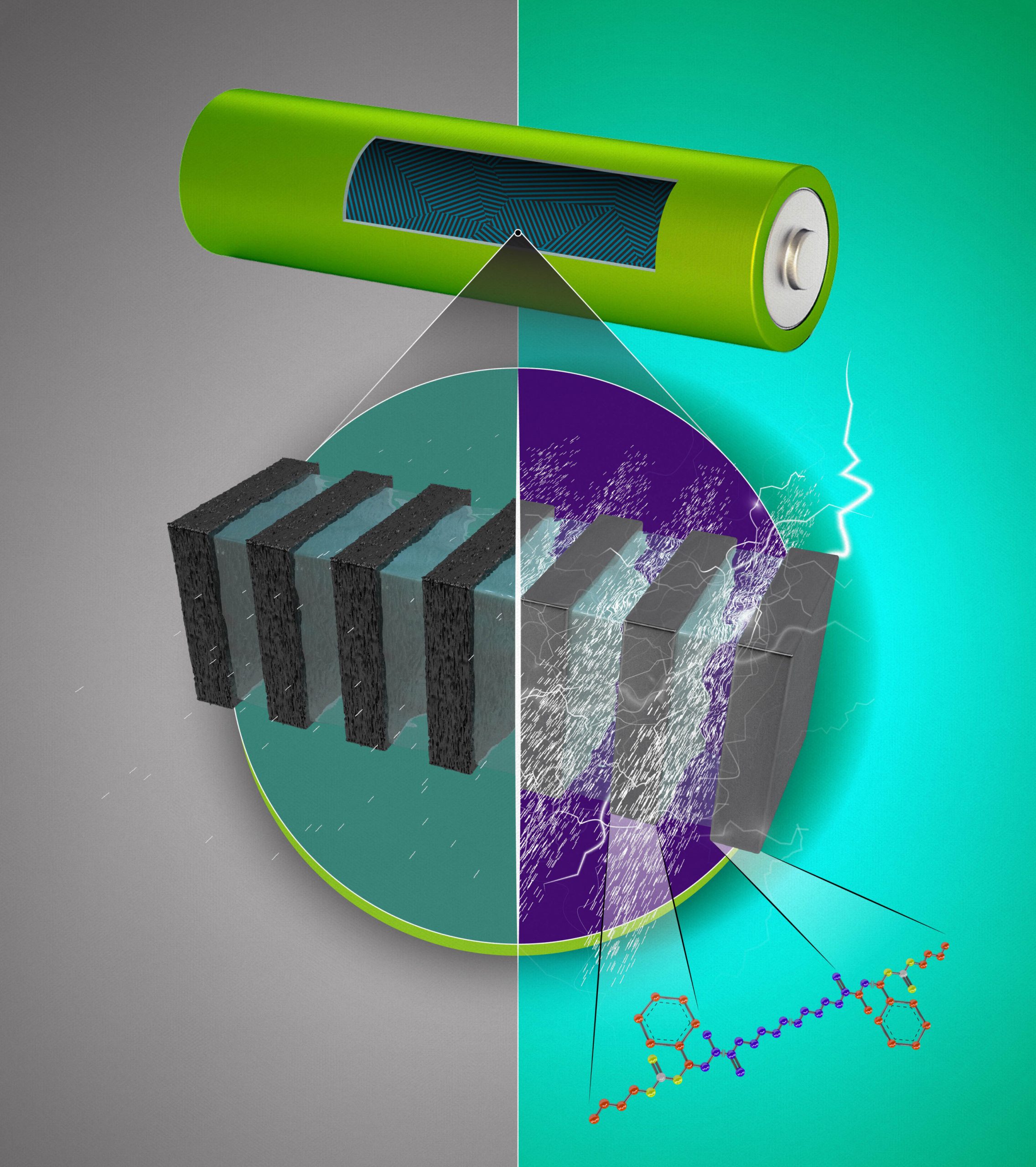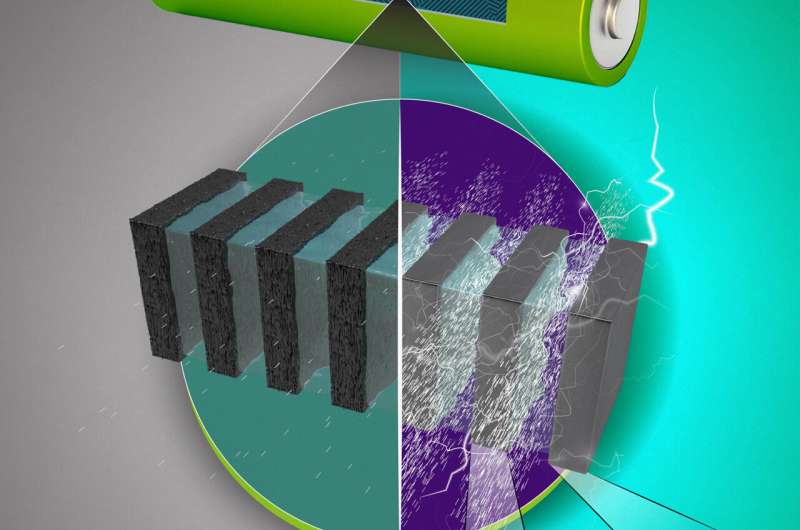

New polymer materials under development at Oak Ridge National Laboratory could enable safer, more stable batteries needed for electric vehicles and grid energy storage.
Polymers are promising electrolytes for solid-state lithium batteries for their low cost, flexibility and processibility, but performance needs to be improved.
“Typically, you can increase flexibility to enhance conductivity, but you sacrifice strength. Our approach bypasses this trade-off by adding flexibility selectively in ion-conducting blocks,” said ORNL’s Guang Yang.
The team designed a block copolymer that sandwiches a conductive core between rigid outer layers that protect the “filling.” The use-inspired design is nanoengineered to block dendrites, lithium growths that could pierce electrolytes and damage batteries.
Results were published in the Journal of the Electrochemical Society in a issue that honored John Goodenough, inventor of the lithium-ion battery.
“Discoveries like this can lead to robust lithium metal batteries that can help us meet clean energy goals,” said ORNL’s Jagjit Nanda.
Ionic liquids make a splash in next-gen solid-state lithium metal batteries
Guang Yang et al, Selective Plasticization of Poly (ethylene oxide) (PEO) Block in Nanostructured Polystyrene− PEO− Polystyrene Triblock Copolymer Electrolytes, Journal of The Electrochemical Society (2022). DOI: 10.1149/1945-7111/ac6a18
Oak Ridge National Laboratory
Citation:
Developing a block copolymer that could enable safer, more stable batteries (2022, June 2)
retrieved 2 June 2022
from https://phys.org/news/2022-06-block-copolymer-enable-safer-stable.html
This document is subject to copyright. Apart from any fair dealing for the purpose of private study or research, no
part may be reproduced without the written permission. The content is provided for information purposes only.